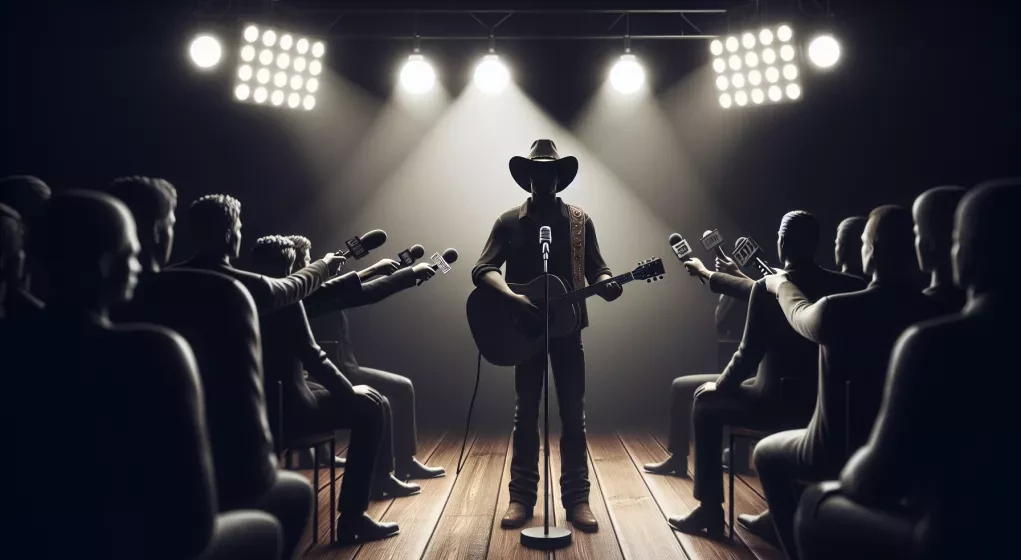Amid the neon glow of the Las Vegas Strip, a tumultuous storm brews within the glittering confines of country royalty. Accusations of a sinister nature have surfaced against virtuoso Garth Brooks, a titan in the twanging world of country music, as he stands accused in a legal maelstrom of sexual assault and battery—a stark contrast to the toe-tapping anthems and heartfelt ballads that have long been his signature.
A grim shadow has been cast over the star’s radiant persona with the filing of a lawsuit by a woman cloaked under the pseudonym “Jane Doe.” Her claims are laden with distressing allegations from 2019, painting a portrait of a star who blurred the lines between public persona and private transgression against someone who once worked intimately as his hairstylist and makeup artist.
The litigation emerged publicly on a brisk Thursday, just as Brooks prepared to reimmerse in the fervor of his applauded residency at the esteemed Colosseum at Caesars Palace. Yet the stage might feel less a sanctum of success and more an amphitheater of scrutiny as the public lenses zoom in for a clearer view of the allegations that could shake the very soil of the country music landscape.
Brooks, staunch in his defiance, retaliated from afar with a preemptive legal move in Mississippi, shrouded as “John Doe,” to quash the accusing voice. He adamantly denounces his accuser’s narrative, as reported by the media spearheading the unveiling of this troubling saga—an assertion that stands as his defense against an invisible, yet cutting, assault on his honor and legacy.
An affiliation with the country songstress Trisha Yearwood, Brooks’ beloved spouse, weaves a connection to the accuser, a bond that harks back to 18 years of service prior to her employing at the hand of Brooks. From the confines of what should have been professional enclaves—his private residence to the solitary spaces of hotel suites on work excursions—the complaint emerges detailing a series of deeply unsettling encounters.
The gravest of these episodes paints a chilling scene within the confines of a Los Angeles hotel room—where the line of demarcation between personal boundary and professional duty blur most vilely, leading to an alleged sexual violation that not even the bright lights of fame could illuminate or shield from.
Yet in the world of allegations, there are always rebuttals and in the language of the law, every suit is met with a counter. Brooks, in his legal battleground, claims a sinister ploy of blackmail—a demand veiled as a threat that, if unmet, would transmute into the current public spectacle, potentially shattering a reputation nurtured over decades. His contention: a desperate fabrication seeking to extort security and benefits from a man whose identity is rooted in decency.
The counsel representing “Jane Doe,” armed with conviction and legal acumen, stands ready in the colosseum not wrought by Roman hands but in one framed by the court of law, where battles are fought with evidence and statutes, where they express their stalwart belief that even within the exalted echelons of country music, accountability is not a forgotten refrain.
For now, in the midst of litigation’s crescendo, Brooks will rise once more upon the stage. His “Plus One” act will proceed before an audience perhaps unaware of the pendulum of justice swinging subtly in the wings of their Vegas escape—a stark reminder that beyond the spotlight’s gleam, shades of humanity await their day in court, even as the show goes on.






